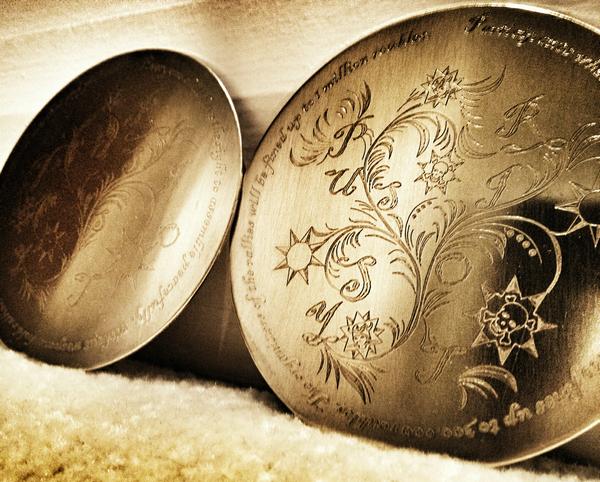A design student from Russia has decided to capitalize on the furor over punk band Pussy Riot in her homeland by creating a...tea set.
Muscovite Alina Tukhvatullina, 24, who has just completed an MA in design at London’s Kingston University, has designed what appears to be a traditional Russian tea set, but hidden among the Khokhloma floral patterns are the names of topics that are generating controversy in modern day Russia.
“Russia has a long tradition of intense discussions taking place around a tea urn known as a samovar,” Alina explained. “I have decided to design a 21st Century samovar which invites Russia’s leaders and opposition to sit down together to try to resolve the country’s current problems.”
The ‘Reconciliation Samovar’ recognizes the traditional Russian tea party dating from the Eighteenth Century when aristocratic families spent hours drinking tea by the samovar. These parties were an opportunity for extended discussion on matters of the day, with the decorative samovar serving as a symbolic centerpiece.
Recent protests against the government have gathered momentum since the presidential election of March 2012. The Reconciliation Samovar is the kind of symbolic things expatriate students come up with - the samovar that can fix politics. Topics of controversial debate, including Pussy Riot, are discretely engraved in a decorative pattern onto the tea set as a prompt for discussion. The research also draws on tradition for elaborate, coded narrative tattoos which evolved within the Soviet Union's prisons, graphically detailing criminal status or time served.

If a punk band likes that an English design student has made a tea set about them, they are not a punk band. But Pussy Riot was in it for the publicity so they might be okay with this.
Alina’s tea set includes plates to put lemon and sugar on which contain the letters that spell Pussy Riot. Three members of the all-female punk band were sentenced to two years in prison last month on charges of hooliganism motivated by religious hatred after performing a song attacking President Vladimir Putin in a Moscow cathedral. The Pussy Riot case has divided opinion in Russia but the musicians have won support from, among others, Barack Obama, Amnesty International, Sir Paul McCartney and Madonna.
“My Reconciliation Samovar is a symbolic invitation to both parties - opposition and government - to rediscover common territory and embrace the Russian tradition of meaningful discussion at the samovar,” Alina said. “The partially disguised messages draw on the Communist-era tradition for elaborate, coded narrative tattoos which evolved in the Soviet Union’s prisons.”
The sugar plate also contains the wording of the law under which the members of Pussy Riot were prosecuted, while the lemon plate contains the words of the right to free assembly which is enshrined in the Russian constitution.
The tea urn itself includes a reference to another cause celebre in Russian politics – the killing of Serge Magnitsky. The lawyer was arrested after uncovering a massive fraud and, a year later, was found beaten to death in his prison cell.
"Pussy Riot is a high profile case highlighting the situation with freedom of expression in post-Soviet Russia," course leader of MA Design: Product and Space at Kingston University, Colin Holden, said. “Alina's project recognises this and reflects it in a traditional, Russian way. Her interest has been prompted by the benefit of a fresh perspective from distance here in Kingston.”